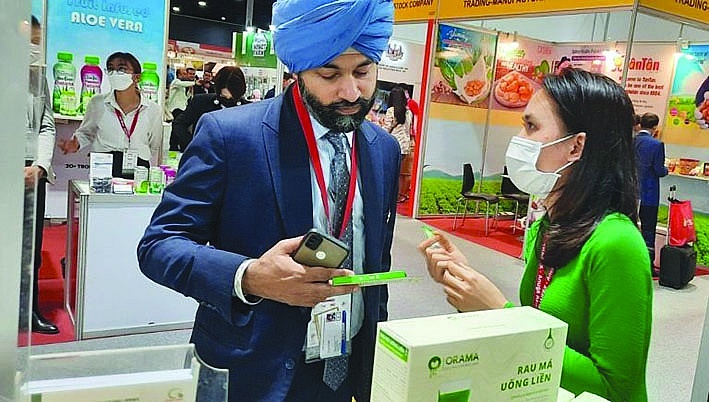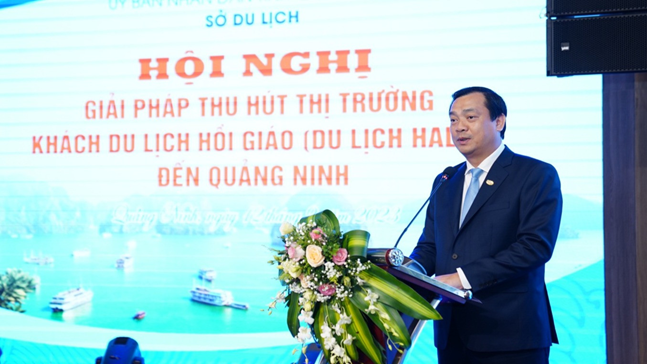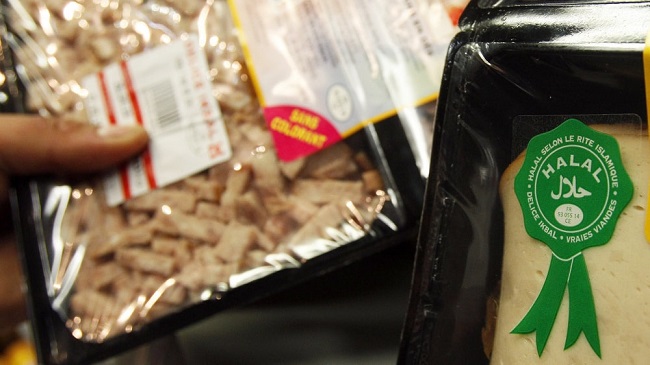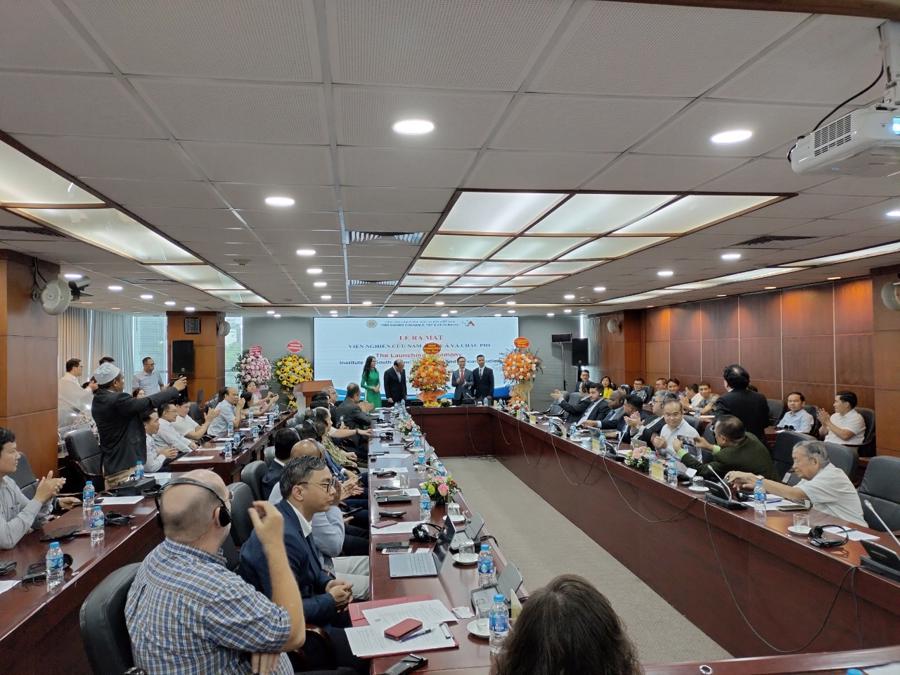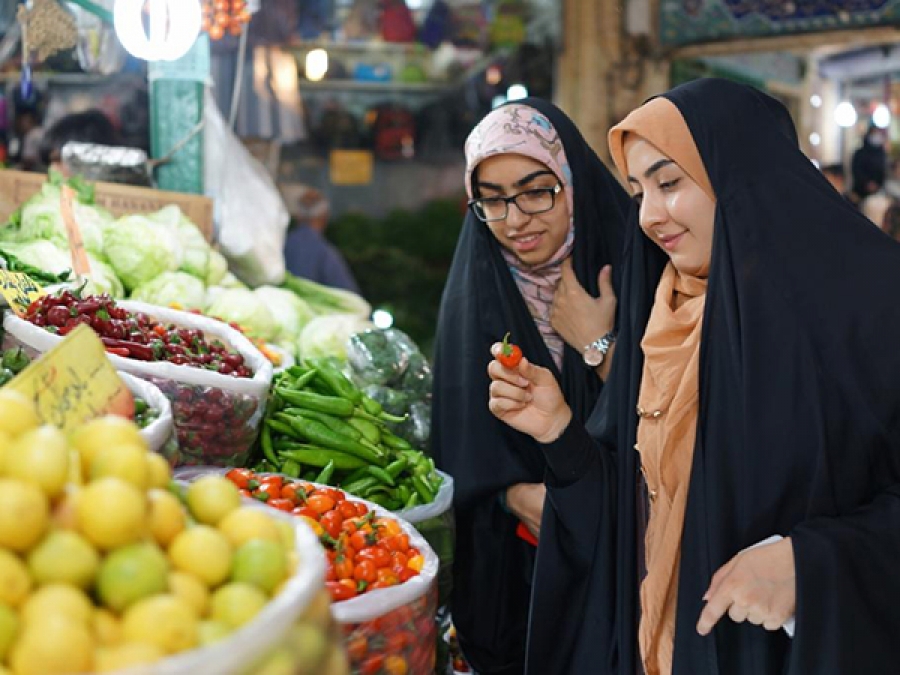Vietnamese Products and 3 Competitive Advantages in the Halal Market
The Halal goods market is growing strongly globally and is expected to continue expanding in the coming years. According to a report by the Pew Research Center, the world’s Muslim population is projected to increase to 2.2 billion by 2030. This means that the Muslim market will have an increasing demand for Halal goods. The size of the global Halal economy is expected to increase to approximately 10 trillion USD by 2027 and grow to 15 trillion USD by 2050.
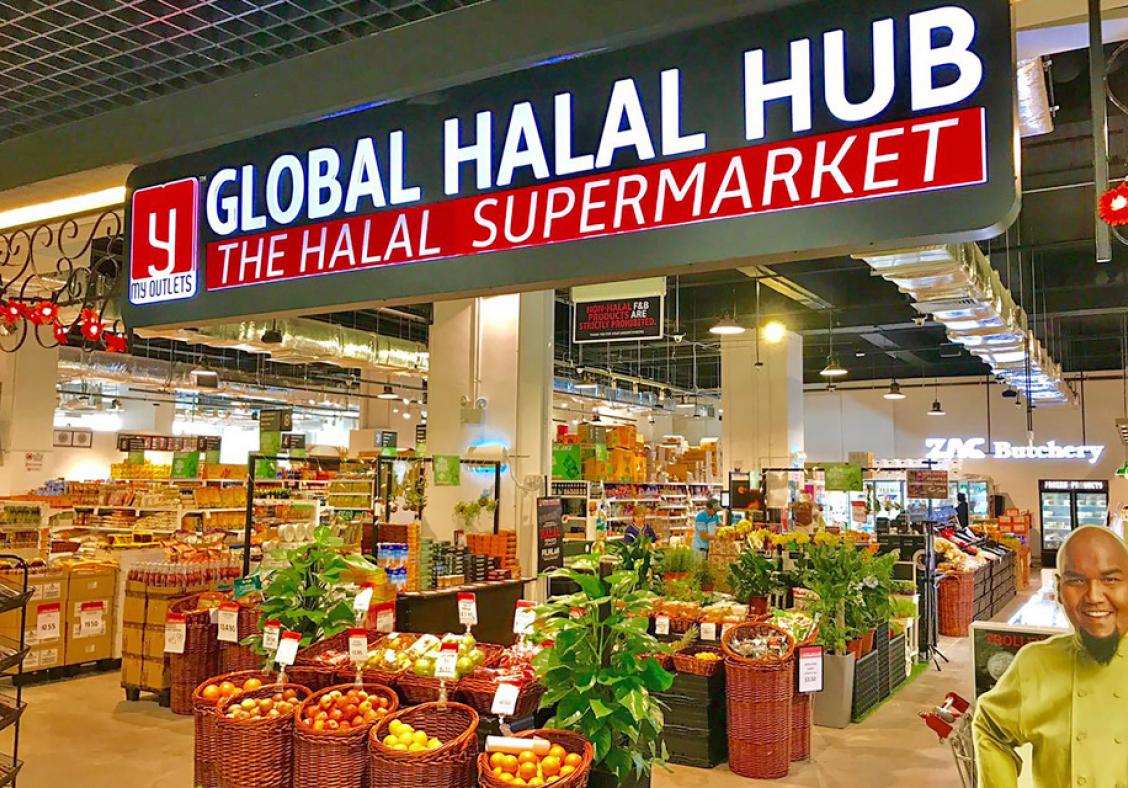
Moreover, countries with large Muslim populations such as Indonesia, Pakistan, Bangladesh, and Malaysia are becoming potential markets for Halal products.
Notably, spending on and usage of Halal products is on the rise, expanding into non-Muslim markets as well, given that Halal food meets various criteria for food safety, quality, and environmental protection. Furthermore, many of the world’s largest Halal producers are not Muslim-majority countries.
Mr. Truong Xuan Trung, Commercial Counselor of Vietnam in the United Arab Emirates (UAE), believes that Vietnamese products have three competitive advantages when exporting to Muslim markets:
1. Geographical Advantage: Vietnam is located in Southeast Asia and Asia, where there is a large Muslim population (including countries like Indonesia, Malaysia, and the Middle East).
2. Government Policies: Vietnam has strategies and initiatives to strengthen relations with Middle Eastern and African countries from 2016 to 2025. The Vietnamese government has made high-level commitments to partners to promote cooperation in Halal production, imports, and certification, creating favorable conditions for Vietnamese businesses to export to the Halal market.
3. Strong Export Sectors: Vietnam is one of the world’s leading exporters of agricultural and aquaculture products and processed goods, such as rice, tea, cashews, coffee, pepper, and beverages.
According to Mr. Trung, the scale and demand of this market are significant. For instance, Indonesia, one of the largest Halal markets in the world and close to Vietnam, has more than 240 million Muslims with a high demand for Halal products that Vietnamese businesses can capitalize on.
Similarly, the UAE market consumes over 420,000 tons of Halal food and grains (fresh and frozen) annually. Dubai is also a global transit hub for Halal products, with an estimated Halal market size of around 512 billion USD per year. Additionally, the UAE’s Halal beverage market is forecasted to exceed 5.5 billion USD in 2024. These impressive figures present significant opportunities for Vietnamese exporters to engage more with this market.
“When looking at growth figures for major product categories in the UAE market, it is evident that Vietnam has strengths in products like agricultural produce, processed goods, and grains. To further boost exports to the UAE and the Halal market in general, Vietnamese businesses need to quickly obtain Halal certification to meet export standards for Muslim countries,” Mr. Trung said.
Mr. Nguyen Tuan, from the Center for Trade and Investment Promotion in Ho Chi Minh City, stated that Vietnam is one of the world’s largest exporters of agricultural and aquaculture products and is geographically close to major Halal markets.
However, Vietnamese food imports and exports to the Halal market are still in their early stages. Annually, about 50 companies in Vietnam receive Halal certification, primarily for seafood, beverages, canned foods, confectionery, vegetarian foods, and pharmaceuticals.
Supporting Businesses to Tap Market Opportunities
According to experts, Vietnam has many advantages as a large exporter of agricultural and aquaculture products, such as rice, rubber, tea, cashews, coffee, pepper, shrimp, and fish. If properly leveraged, these strengths can help Vietnam solidly enter the Halal product market.
In particular, Vietnam’s geographical proximity to major Halal markets is advantageous, as about 62% of the global Muslim population is concentrated in Asia. Southeast Asian countries like Indonesia and Malaysia, which have large Muslim populations, present potential markets familiar to Vietnamese businesses.
However, the biggest challenge in the Halal industry is the lack of a universally recognized Halal standard worldwide; there is no proper classification of Halal products by customs code, making data retrieval and product searches difficult. Most Muslim-majority countries require Halal certification for products as a mandatory requirement.
Ms. Ly Kim Chi, Vice President of the Ho Chi Minh City Business Association (HUBA) and President of the Food and Foodstuff Association (FFA), noted that Halal standards and regulations are becoming increasingly stringent. Halal certification is not permanent and is not universally recognized across countries and all product categories. This situation poses challenges for businesses, as they must re-certify their products multiple times based on the export market’s requirements.
Mr. Nguyen Van Cam from CPV Food Binh Phuoc, one of the companies with international Halal certification in livestock, shared that although the Halal market is vast, Vietnamese businesses have not yet fully exploited it. For Muslims, chicken is highly consumed, with demand second only to seafood. CPV Food has sold Halal chicken products to hotels, restaurants, and Muslim tourists in Vietnam.
Sharing his experience in complying with Halal certification requirements, Mr. Nguyen Dang Hien, Chairman of the Board and General Director of Tan Quang Minh Production and Trading Co., Ltd., explained that Muslims only purchase Halal products as proof of their faith, permitted by Allah.
Therefore, businesses should be mindful not to mention other religions, avoid advertising sensitive images (women, other religions) on product packaging, use payment methods like D/P (documents against payment), remittance, deposit in advance, and rarely use L/C (letter of credit). Packaging must be in Arabic, and Arab consumers prefer direct interaction with suppliers and sample goods.
Facing the challenges that businesses encounter, Ms. Nguyen Minh Phuong, Head of the West Asia and Africa Division, Asia-Africa Market Department (Ministry of Industry and Trade), stated that the Ministry of Industry and Trade is currently developing a plan to support the production and export of Halal products.
Additionally, resources from the National Trade Promotion Program effectively support Vietnamese businesses in participating in activities to connect and promote trade in Halal markets, specifically in Africa and the Middle East. It is crucial for businesses to focus on market promotion efforts and actively participate in programs, fairs, and trade connection activities directly in the target markets.


